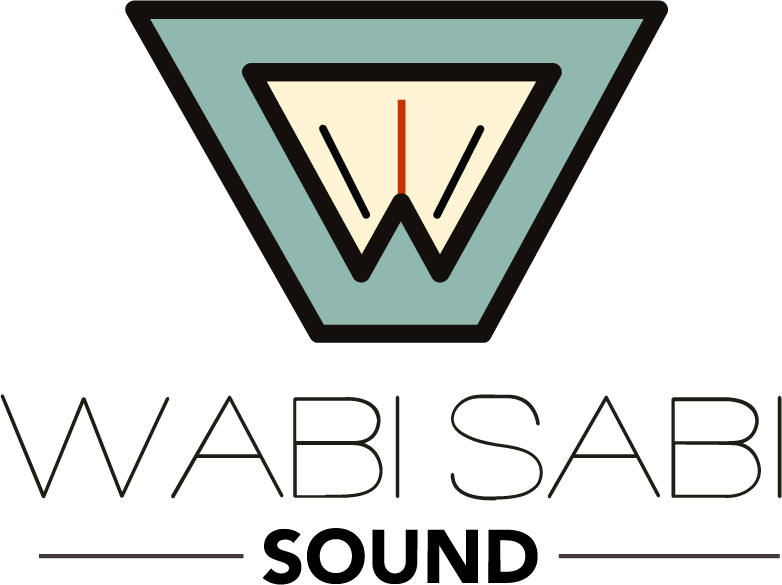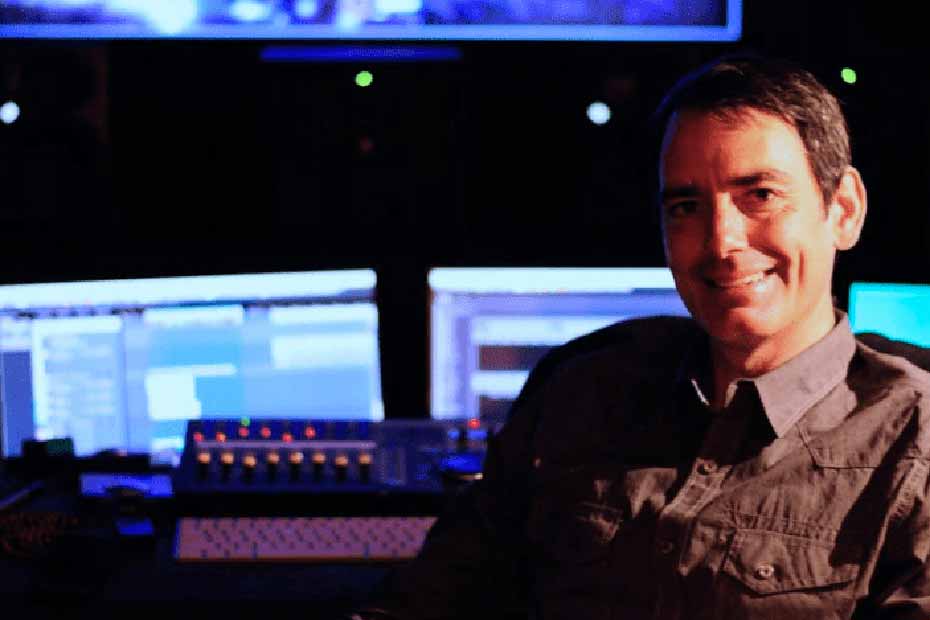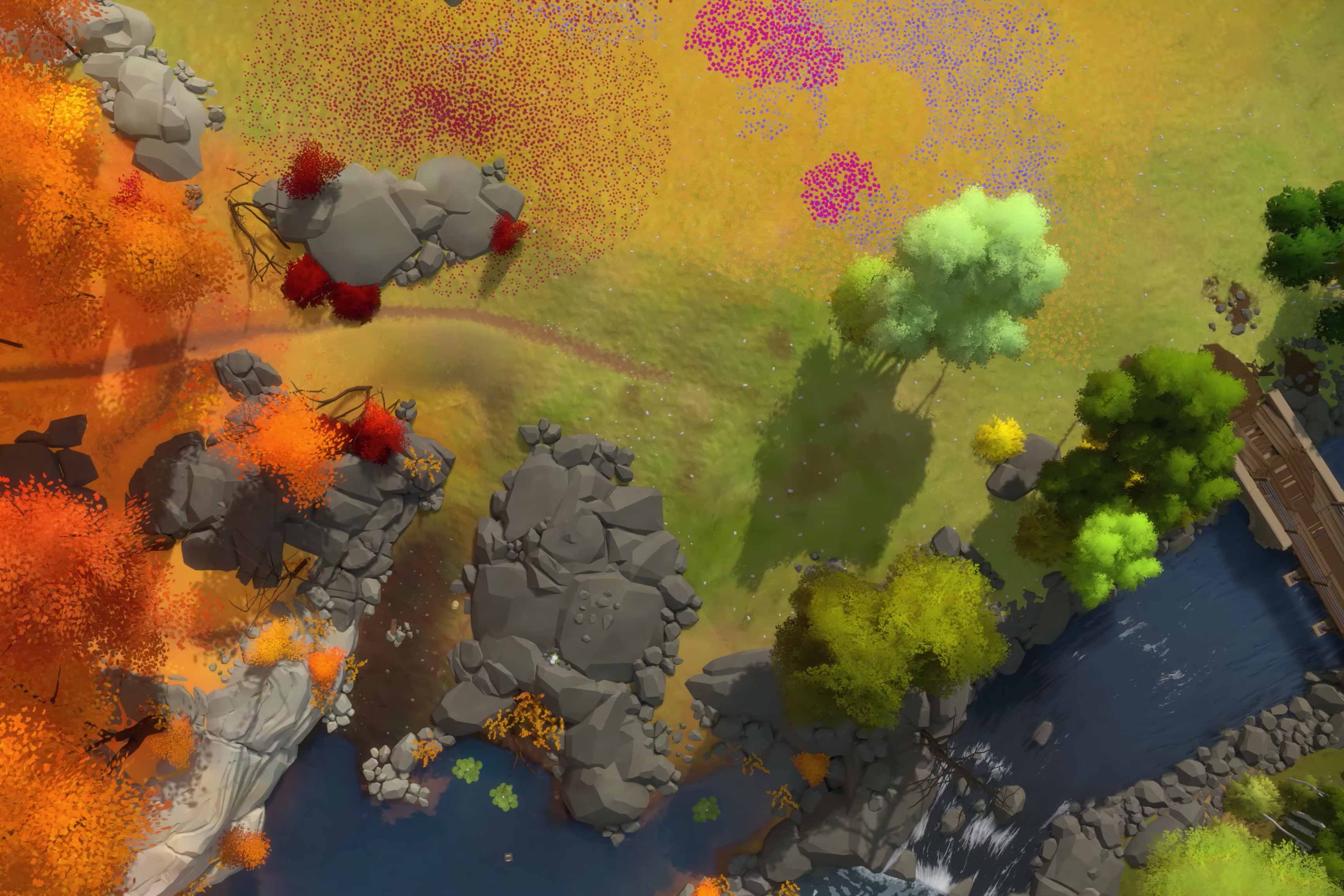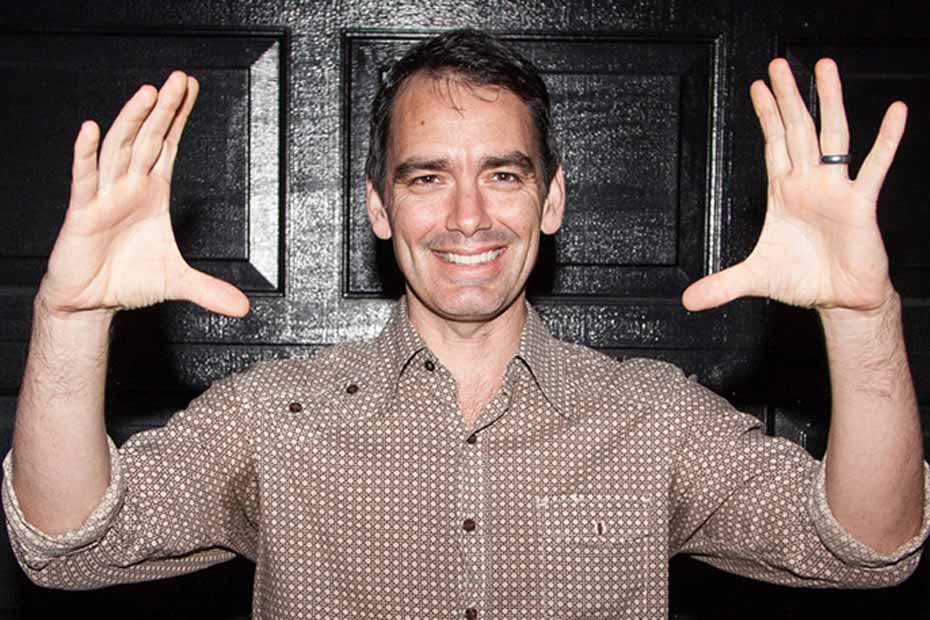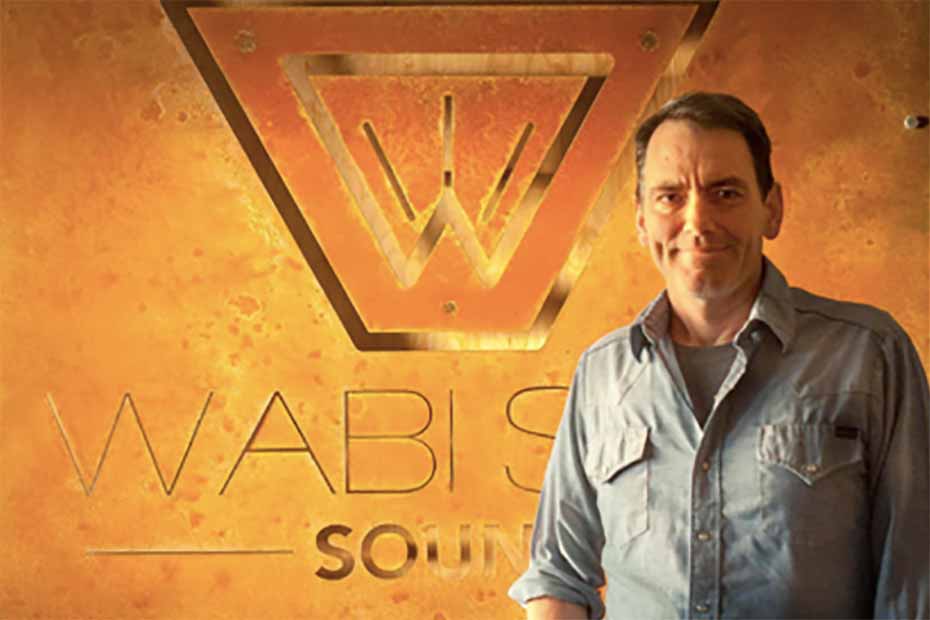
SHARE THIS
The Big Audio in the Interactive Gaming Industry: Behind the Scenes with the ‘Big Ear’ Andrew Lackey and Wabi Sabi Sound
By Mollee Harper
Georgia Entertainment News is proud to bring you this special profile on the sound design, composition, voice production and audio development on the gaming side of Georgia’s booming entertainment industry. We travel to Atlanta for an hour with Andrew Lackey, Award Winning Audio Director, Sound Designer and Owner of Atlanta-based Wabi Sabi Sound Inc., whose music and sounds accompany the hottest video games in the now estimated $18.4 billion interactive entertainment market.
During our time together, Lackey takes us inside the world of gaming, and highlights his work over the past two decades. From designing intense monsters, recording guns in North Georgia, producing music and developing sophisticated interactive sound experiences, we learn why AAA and blockbuster game clients around the world choose his studio. Lackey talks about his optimism over the recent changes to Georgia’s tax credits and the State’s future in gaming. He also shares insights on the unknowns of audio, and his process for discovering the potential in every sound.
Wabi Sabi Sound, Inc. is an Atlanta-based audio post house, serving mega media companies and independent interactive game producers, as well as producers of virtual reality, feature films, commercials, 4D experiences and marketing trailers. Andrew Lackey leads the small and wildly successful team of composers, designers, engineers and actors delivering complex cinematic and interactive projects for some the gaming industries leaders including: Microsoft, Valve, Inc, Electronic Arts, Sony, Activision and 2K Games.
Wabi Sabi Sound’s recent releases include: ‘SOS’, ‘Ori and the Blind Forestv’, ‘The Witness’, as well as contributing to last year’s blockbusters’ ‘Call of Duty WWII’, ‘Destiny 2’, and ‘Horizon: Zero Dawn’.
Introducing “The Big Ear” and Wabi Sabi Sound
Lackey shared, “We started Wabi Sabi Sound in 2008 and are coming up on our 10-year anniversary this year.”
“The name – Wabi Sabi – is a Japanese philosophy and art aesthetic. I finished a major project for Electronic Arts in San Francisco, called ‘Dead Space’ in mid-2008 and planned a trip to Japan with my – now – wife Alyson right afterwards. I had been thinking about starting my own company. At that point I had worked in film for Danetracks in Los Angeles and Skywalker Sound, as well as the games business for a combined 12 years. I was ready for a change, and I felt ready to bring all that I had learned to different kinds of clients and projects. I was really open at that point in my life, and while in Japan learned of the Wabi Sabi philosophy that underlies their culture. Their Zen gardens, temples and even tea ceremony traditions have this rich purpose. It’s a deep reflection of beauty that is present in all states life from imperfection to perfection and everything in-between – from inception to full blossom, to decay, and death. A tea ceremony may intentionally have a cracked pot. Or, a perfectly manicured garden could have one bright orange leaf sitting on a stone.”
“For me, that fit SO well with what I had learned from the masters about storytelling and sound. Stories and sound have moments of perfection…maybe the climax or denouncement, but 95% of it is the nuanced mess that happens before and after. Building a world and then tilting it off kilter, just so, for an emotional affect. What bothered me professionally was that ‘post production sound’ was so often thought of as this commoditized mechanical process of attaching sound effects to the picture. It can be a true force of storytelling power if you approach it the right way. That’s what Wabi Sabi Sound is about.”
“Most of my rich collaborations with producers and game designers have been working with them from the ground level up, and bringing all of the ways that sound can enrich and enhance a human aspect of a compelling project. Sound is such a powerful tool in that. Audiences are generally not as critical about what they are hearing as they are with what they see like acting, set design and wardrobes. Sound just works on different parts of the brain. Because it goes largely unnoticed, Sound has great power to influence the subconscious.”
He continued, “I am the owner and principal of Wabi Sabi Sound and lead a team of five employees. We wear multiple hats. We all do some degree of sound design, voice acting, music, field recording, software development and work in the technical tools. We really don’t see the need to compartmentalize skills as long as we’re hitting our mark. We like T shaped people….highly skilled in one area, but have broad skills in game audio development.”
Lackey offered, “My official title is the ‘Big Ear’. As for my personal skill set, at my core I am a sound designer. I also compose and have voiced many characters. I am constantly recording sounds, all the time. Most people carry cameras on vacation. I have a sound recorder in my pocket. We have a unique library with over 20,000 sounds we have recorded. They range from guns we shot in the North Georgia mountains, to my friend’s bulldog that makes this weird snorting sound that is perfect for certain characters – sounds from all around the world. We are a lot more organic than most in our approach to capturing and using sounds. Random things catch my ear all the time. We’ll grab it and stick in the library for some interesting use down the road. We are always listening for that next unique sound or noise. I figure that our projects can’t help but sound unique if we’re starting with our very own ingredients.”
He continued, “I did work in film in LA for seven years. Right now, 90% of our work is in video games. The video games keep us all pretty busy.”
“We have one other lead here; that’s Eric Lorenz. He recently finished a project with CCP in Decatur which was a virtual reality game called ‘Sparc’ that was released for PlayStation VR. We were involved in 12-13 different gaming projects last year. Mala Sharma is our studio manager.”
“We have a studio in Atlanta with a 700 square foot 7.1 theatre and three other rooms. We’re involved with pretty much everything related to sound on our projects – music, voice and sound. We’re also doing the nitty gritty game audio development, system design and implementation of sound. Really we see very little difference in all them as far as our approach, and even if a client has a composer, we’ll work directly with them.”
”We partner with a lot of strong voice talent in town like Bob Carter, Laurie Winkel and Laura Taylor (who’s also a sound designer), who are all big in this arena and well connected in town.”
Lackey shared, “We work on many well-know video game titles from studios around the world. For us, even though I have a good film background, the gaming sector has been our biggest source of revenue. It’s not uncommon for us to work for 3-5 years on and off for a game project. That would be from its inception to final release, and post release content if the project does well. Game companies are more like traditional companies as well. If they did one successful game, they receive a healthy chunk of that revenue and will be itching to do another.”
Lackey explained, “With our clients, we are there with them from inception, thinking about the experience they want to provide for their players, and thinking about what sound can contribute. One time game designer, Jonathan Blow was first describing to me the game ‘The Witness’. It’s a very minimalist deserted island experience where you discover and solve interesting puzzles that reach enormous scale. He made the decision early on that there would be no music and no extraneous sound, because the player needed to use their own insights to work through problems. Having anything extraneous would be counter to the core game design of finding puzzles to solve. Right then, I suggested what if there WERE extraneous sounds that the player would hear, search for and find. Whereby there would be sound puzzles to work out….like bird tweets. The player will hear absolutely no animal sounds until that moment. Only you find a speaker in a tree and a puzzle to solve. Four months later it was in the game.”
“More typically, we might have a small prototype to kickoff a project with what our client is making to get a publisher on board. In addition to all the production work, we’re also good at managing the development of projects like: budgeting, interfacing with publishers, QA departments, rights management and other logistics. With games its basically software development, so there is significant technical skills we need as well.”
Insights into Wabi Sabi Projects
Lackey shared, “A fun little thing happened today. A game called ‘SOS’ that we do all the sound for (Voices, Music and SFX) just went into Early Access (Paid Pre-Release) today. Snoop streamed it on Twitch and said he liked the music. It’s a project we’ve been working on for three and a half years. We came in before there was anything playable about the game. It’s exciting to receive that early endorsement.”
“We are working on two main projects this year: ‘SOS’ from Outpost Games went into pre-release yesterday. We are releasing the full version in March of this year. The other one we are working hard on is a game called, ‘Ori and the Will of the Wisps’. We won several sound awards for the first version of that game (‘Ori and the Blind Forest’).”
Lackey continued, “With games, there is a pretty phenomenal revolution in the way they are being consumed. Watching a TV show or playing a game, those lines are becoming blurred. People spectating video games is very common now, just check out Twitch.tv. ‘ SOS’ is a game that was designed as both a game and a reality TV show. You can watch and participate with real time voting of how the game plays out. ‘Survivor’ meets ‘Hunger Games’ is a good analogy. I think Snoop was part of a publicity show for ‘SOS’, to watch the game on Twitch. He did a great job of both – playing and watching people play.” Snoop Likes the Music.mov
Lackey described, “We are always factoring in the spectators and their experience now. This is huge, particularly with Millennials. This movement of gamers and people watching games is being mainstreamed and also comes with huge revenue. I think we will see a lot more of this in the future. This is a really interesting place for us, not just creatively, but also from a business side too. The gaming industry is rapidly shifting in this direction. We are figuring out how to make them more interesting to watch, and play, all the time.”
Experience the GitHub Universe Project 2017 on YouTube by Wabi Sabi Sound and Composer Chris Rickwood (to be featured in an upcoming profile):
Georgia’s Gaming Industry
Lackey continued, ”My company has been based out of Georgia for four years now. We haven’t been able to participate in the tax credits yet, mainly because we are a small shop and work on projects that are done elsewhere in the world. Our clients are not participating. With the recent changes to the music and gaming credits this past year, there is a chance we can qualify for those via the payroll incentive and look forward to that.”
Lackey described, “Atlanta has a few major developers of gaming – Tripwire and High Rez, and a few others that produce online multiplayer games that people all over the world are playing. When you get to those levels, it’s almost like they are their own sport. They have such a deep fan base that supports their studio. It’s a persistent 24/7 culture of people interacting with their games.”
“As far as the way Atlanta is shaping up as a game development community, I’ve seen it grow a lot in the four years I have been here. However, we’re fairly light on video game audio talent. I think it is a great environment for development with companion industries like entertainment, marketing and other software development doing well. While I commend local schools for their programs, I think local young professionals can be better prepared. I understand the challenges. It’s a relatively new, fast-moving industry where a lot fundamental technical and creative teaching is needed as well. In that regard, I don’t think we’ve hit a critical mass yet of having enough industry so schools can orient the programs directly to our needs. In general, there is a lack of experienced game audio talent here, but there is plenty of talent from related industries we have incorporated to our projects. Having moved from the San Francisco area, I can say this is easily as good of a media market talent pool, and seemingly more community-focused. We all support each other really well.”
Lackey added, “I have a lot of compliments to spread around about the area. Andrew Greenberg and Dekalb County has done a lot to support the industry. We also work with veteran sound designer and mixer, Michael Cardillo. There has never been a shortage of people to ring up to network with. Seeing the government support this side of the industry in the tax breaks recently has been really great. Dekalb has great programs nurturing young talent and bringing the community together. It’s all about working together in the entertainment community, and becoming a routine source of talent and production know-how that can get these really great projects done. I am optimistic about the future here.”
“If I had a 10-year goal for our industry here in Atlanta, it would be to have more vertical businesses that own their IP. That will help sustain and finance the gaming side of the industry here. The nice thing about games is that the distribution model is pretty straight forward and doesn’t require a film studio or network to be successful. This is the vertical integration of creating content, monetizing it and reinvesting it back here in Georgia. The games business is far more decentralized than TV and film. This is a big opportunity for Georgia.”
Owner Bio
Andrew Lackey is an award-winning Audio Director and Sound Designer. He founded Atlanta-based Wabi Sabi Sound Inc. in 2008 and serves as the principal. Prior to founding his own business, Lackey worked in LA’s film industry as a Sound Effects Designer for Danetracks, and later on in Northern California with Skywalker Sound. Andrew switched primarily to game in 2003 taking a Senior Sound Designer position with Electronic Arts. Lackey’s recent projects: SOS, Ori and the Blind Forest, The Witness, Nanite Fulcrum (VR), Destiny 2, Horizon Zero Dawn, and Call of Duty WWII to name a few. He is also known for his audio work on feature films including: The Matrix, Matrix Reloaded and Matrix Revolutions (1999,2003), Treasure Planet (2002) and Red Planet (2000).
